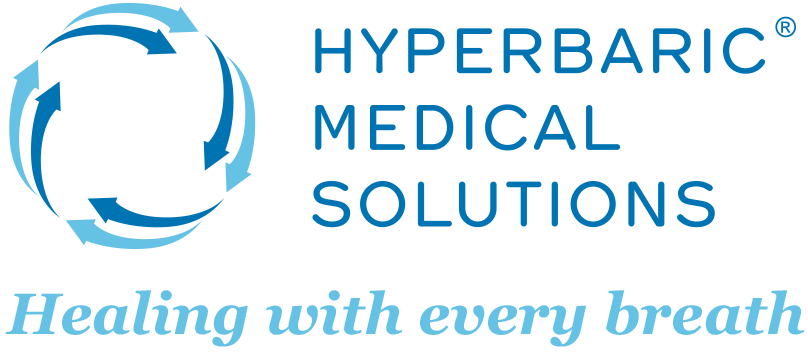A Breakthrough Treatment for Depression & Anxiety
Guided Ketamine Therapy with Kate Yeadaker, APRN, FNP-BC
Struggling with Depression, Anxiety or other mood disorders?
Ketamine Therapy offers a breakthrough for patients with depression, anxiety, PTSD, and more, when nothing else works.
Research shows that Ketamine Therapy provides rapid relief, reduces inflammation, and promotes neuroplasticity—helping the brain form new, healthier patterns.
Many patients describe a shift in perspective, gaining clarity and emotional relief. Guided by Kate Yeadaker, APRN, FNP-BC, CISTT, CRM, each session is a safe, 1-on-1 experience designed to help you process and heal.
Get Started TodayWhat Is Ketamine Assisted Therapy?
Ketamine-Assisted Therapy (KAT) combines the powerful effects of intramuscular (IM) ketamine with guided support to enhance healing and personal growth. Ketamine has been safely used since the 1970s and has been shown to effectively treat conditions such as depression, anxiety, PTSD, PMDD, OCD, and chronic pain.
.png)
Conditions KAT Can Be Used For:
- Depression
- PTSD
- Anxiety
- Chronic Pain
- OCD
- PMD
Rapid Relief:
Intramuscular Ketamine Therapy offers fast-acting results in mental well-being, with many patients experiencing significant improvements in mood and well-being within days or weeks—far quicker than traditional treatments, with less side effects.
Deep Healing in a Safe Space:
IM ketamine allows you to access and process emotions in a controlled, supportive environment. Rather than overwhelming experiences, each session is accompanied by Kate, a seasoned NP, who guides you safely toward healing.
Lasting Change:
Ketamine has been clinically proven to rewire neural pathways, promoting greater flexibility in thought patterns and emotional processing. Through a guided session, you're able to integrate insights, develop healthier coping mechanisms, and create lasting positive change.

About Kate
Your Ketamine Therapy Guide
Kate Yeadaker is a seasoned Holistic Nurse Practitioner with over two decades of experience, specializing in trauma, integrative medicine, and psychedelic therapies. With advanced certifications in Ketamine-Assisted Therapy, Somatic Trauma Therapy, and energy healing, Kate offers a safe, guided 1-on-1 journey through the ketamine experience.
Her Ketamine Therapy approach is holistic, combining mindfulness, sound healing, and therapeutic touch to enhance the healing process. Kate’s expertise ensures that each session is tailored to your unique needs, creating a supportive environment for emotional and mental breakthroughs.
With a deep commitment to the transformative power of ketamine, Kate helps individuals overcome barriers to healing, fostering growth and clarity through personalized care.
FAQ
Frequently asked questions about our Precision Longevity Program
What conditions does ketamine treat?
Ketamine is a robust and powerful anti-depressant. Studies have shown that ketamine relieves depressive symptoms for 75% of patients with depression, including Major Depressive Disorder and Treatment-Resistant Major Depressive Disorder. Ketamine is also helpful in addressing the symptoms of PTSD, Anxiety, OCD, and chronic pain. Many people seek ketamine therapy to provide a “deep reset” when they are dealing with stress and overwhelm. It provides a “time out” period of peacefulness, and therefore anyone can benefit from a session.
How often should the Ketamine sessions occur?
We recommend once a week sessions, until the completion of six doses. Upon completion of the six dose package, your provider and you can discuss the need or possibility for continuing care.
What are the side effects of Ketamine?
The most common side effects are feelings of grogginess, lack of balance, nausea, and occasionally, vomiting. An anti-nausea medicine will be given before the session, and mint tea and ginger tea are encouraged during the fasting period.
Is Ketamine safe and legal?
Ketamine is a very safe medicine. If has been used since the 1970’s. It is used daily in the emergency room and operating room, even on children. Ketamine is completely legal, and is considered an “off label” FDA treatment for depression.
What does a Ketamine session feel like?
This varies from person to person. But, many people describe it as peaceful, a sense of deep relaxation and a dissolving. Many people may describe seeing colors or landscapes, or having the sensation of floating through space. Many people describe feelings of deep gratitude, love or bliss. Many people see their lives from a “zoomed out perspective” allowing them deeper insights and perspectives. Many people may sees visions of deities, or avatars, or loved ones.
There is no right or wrong experience to be had. ALL experiences have value.
What can I expect from my Ketamine session?
Your ketamine session will begin with a 20-30 min session with Kate, discussing your intentions for the journey as well as catching up on your life, thoughts and feelings. Kate will ensure you are comfortable, safe, and as relaxed as possible before the beginning of the session. Your vital signs will be taken. You will be given an anti-nausea medication, and any questions or concerns you may have, will be addressed before you are given any medication. After the medication is administered, via intramuscular injection, you will be in “journey” for an hour to an hour and a half. Afterwards, you will “process” this experience with your provider, to help you access deep insights and tools that will support the integration of this experience. Your session is one on one, and is always scheduled for a total of 3 hours. It is a deeply personal, curated, and supported experience.
Is Ketamine considered a psychedelic medicine?
The term “psychedelic” was first coined by English psychiatrist Humphrey Osmond, in a letter addressed to Aldous Huxley in the 1950s. It’s a combination of the Greek words psyche, which means “mind”, and delos, meaning “to reveal”. At its very core, a psychedelic experience is a manifestation of the mind, which naturally lays way for its potential for introspection and learning.
Ketamine treatment reliably and effectively produces many or all of the classic indicators of a psychedelic experience within a single session. Individuals commonly report a distorted sense of time, find their experiences difficult to describe, feel detached from their self (dissociation), and feel as if they were able to access a new, yet familiar, space with novel realizations and information.
Psychedelics like ketamine can open critical periods that are usually closed. They do this by modulating a pathway involving increasing neuroplasticity in the brain, which then “opens” that critical period and allows for the brain to temporarily be extraordinarily receptive to new ways of thinking, feeling, and processing information about the world and oneself. This is thought to be one of the main therapeutic mechanisms for psychedelics. Ketamine in particular can also reduce activity in the Default Mode Network, which is notable in that this network is overactive and unable to be turned off in individuals with Major Depressive Disorder.

